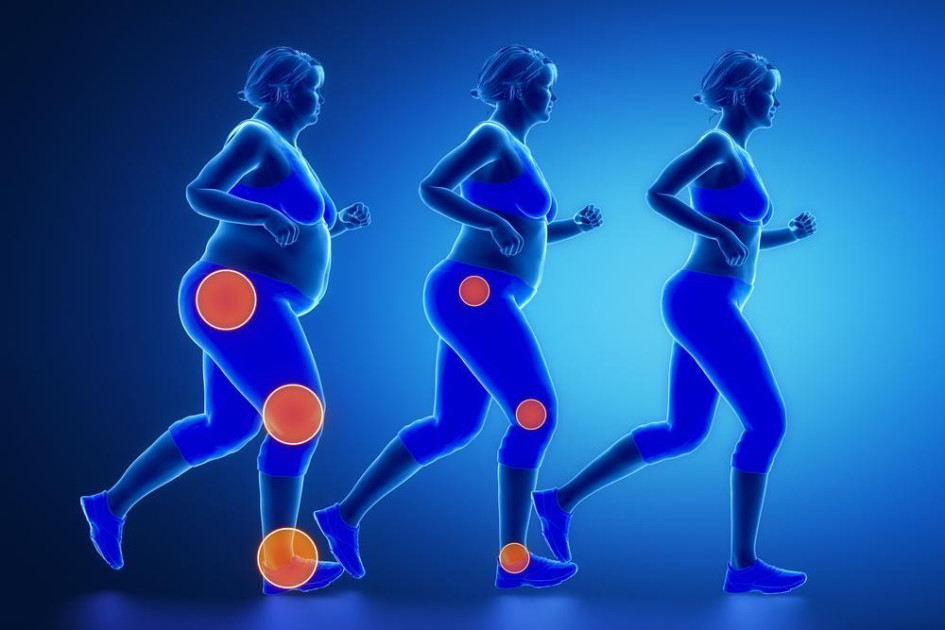
Chronic pain, obesity, and mental health struggles are more connected than most people realize. When one of these conditions is present, the others often follow, creating a cycle that can feel impossible to escape. Many individuals with chronic pain find it difficult to stay active, leading to weight gain, which in turn places added strain on the body. At the same time, the emotional toll of dealing with persistent pain and physical limitations can contribute to depression, anxiety, and stress.
Individuals with morbid obesity are 4 times more likely to report chronic pain compared to those with normal weight.
Abdominal obesity is associated with nearly a twofold increase in the likelihood of chronic pain among older adults, independent of other health factors.
Obesity is associated with approximately a 25% increase in the odds of mood and anxiety disorders.
At Recovia, we approach healing through the biopsychosocial model, which recognizes that these conditions are not just physical but are deeply influenced by psychological and social factors. Instead of treating symptoms in isolation, we focus on the whole person - mind, body, and environment, to create long-term, sustainable health improvements.
How Chronic Pain, Obesity, and Mental Health are Connected
Understanding the relationship between these conditions is key to breaking the cycle:
- Chronic Pain & Obesity: When someone experiences chronic pain, quality of movement becomes difficult, which can lead to a more sedentary lifestyle. This reduced activity can contribute to weight gain from adipose tissue (fat tissue), reduce lubrication and mobility of joints, decrease muscle strength and endurance, all of which contribute to intensifying pain symptoms. Additionally, excess fat tissue promotes inflammation, which can worsen pain conditions such as arthritis, fibromyalgia, and lower back pain.
- Chronic Pain & Mental Health: Persistent pain alters the brain's chemistry. The stress and frustration of dealing with daily discomfort can lead to increased levels of cortisol (the stress hormone), making pain feel even worse. Over time, this can contribute to anxiety, depression, and emotional distress, leading many people to feel isolated or hopeless.
- Obesity & Mental Health: The connection between weight and mental health is complex. Emotional eating, body image struggles, and the social stigma surrounding obesity can create feelings of guilt, low self-esteem, and isolation. In some cases, depression can also lead to weight gain as individuals turn to food for comfort or experience reduced motivation to engage in physical activity.
Breaking this cycle requires an approach that goes beyond medication or diet plans. That's where the biopsychosocial model comes in.
Why the Biopsychosocial Model works
Traditional healthcare often treats these issues separately; pain is managed with medication, weight is addressed through diet plans, and mental health is treated with therapy. While each of these approaches has value, they do not work in isolation. The biopsychosocial model acknowledges that physical, psychological, and social factors are deeply intertwined, and true healing requires addressing all three areas together.
1. Biological: Managing Physical Health & Pain
The biological component focuses on addressing pain and weight-related health concerns through a combination of:
- Physical therapy & movement-based therapies to improve mobility and reduce pain without relying solely on medication.
- Nutritional education to support sustainable weight management and reduce inflammation.
- Medical interventions when needed, such as non-opioid pain management techniques.
These treatments work together to restore physical function and empower patients to take control of their bodies.
2. Psychological: Addressing Mental Health & Coping Strategies
Pain is not just physical; it is also deeply psychological. Chronic pain can heighten stress levels, while stress and anxiety can amplify pain perception. Recovia incorporates individual counseling:
- Cognitive Behavioral Therapy (CBT) to help patients recognize and change negative thought patterns that contribute to pain and emotional distress.
- Mindfulness-Based Stress Reduction and Motivational Interviewing to promote awareness, resilience, and motivation for lasting healing.
By addressing how pain, weight, and mental health influence each other, we help patients develop healthier ways to cope.
3. Social: The Role of Support & Community
Healing is not just about what happens in a clinic, it is also about the support systems surrounding a person. Social connection plays a significant role in mental health, weight management, and chronic pain recovery. Recovia's approach includes:
- Group therapy and peer support programs to reduce isolation and provide motivation.
- Lifestyle changes and habit-building strategies to promote long-term wellness.
A strong community is key to breaking unhealthy cycles and creating positive, lasting change.
Breaking the Cycle
The good news? This cycle can be broken. By treating the mind, body, and environment together, we empower patients to take control of their health in a sustainable way. At Recovia, we believe in personalized care, ensuring that each patient's treatment plan is tailored to their unique needs and challenges. Whether someone is struggling with chronic pain, obesity, mental health concerns, or all three; we offer a path forward that doesn't rely on quick fixes but instead focuses on long-term healing.
Start your healing journey today
If you or someone you know is ready for a comprehensive, whole-person approach to managing chronic pain, weight, and mental health, we are here to help. Contact Recovia today to learn more about our programs and how we can support you on the road to recovery.
Works Cited
Okifuji, A., & Hare, B. D. (2015). The association between chronic pain and obesity. Journal of Pain Research, 8, 399–408. https://doi.org/10.2147/JPR.S55598
Rossi, A., Lord, S. R., Brodaty, H., & Wen, W. (2011). Abdominal fat and chronic pain in older people. Pain Medicine, 12(6), 877–885. https://doi.org/10.1111/j.1526-4637.2011.01119.x
Simon, G. E., Von Korff, M., Saunders, K., Miglioretti, D. L., Crane, P. K., van Belle, G., & Kessler, R. C. (2006). Association between obesity and psychiatric disorders in the US adult population. Archives of General Psychiatry, 63(7), 824–830. https://doi.org/10.1001/archpsyc.63.7.824




